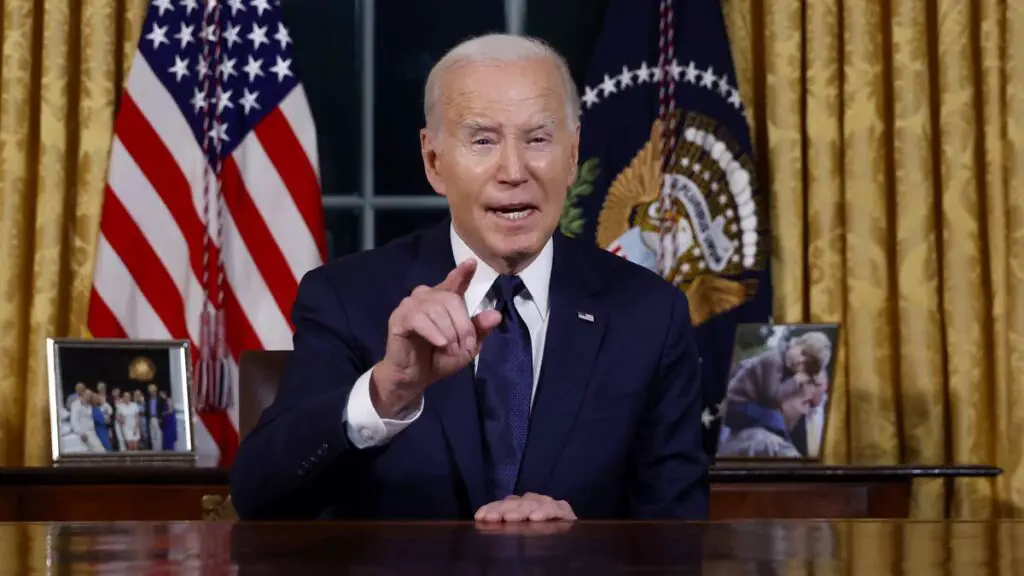The Biden Administration Designates 31 Tech Hubs to Boost Innovation and Job Creation
The Biden administration announced on Monday its plan to designate 31 technology hubs across 32 states and Puerto Rico. This initiative aims to stimulate innovation, create job opportunities, and promote economic growth in the industries concentrated in these areas.
President Joe Biden expressed his vision for the future, stating, “We’re going to invest in critical technologies like biotechnology, critical materials, quantum computing, advanced manufacturing — so the U.S. will lead the world again in innovation across the board. I truly believe this country is about to take off.”
The establishment of these tech hubs is the outcome of a process initiated by the Commerce Department in May. The department is set to distribute $500 million in grants to cities as part of this endeavor. The funding for this program comes from a $10 billion authorization in last year’s CHIPS and Science Act, which aims to stimulate investments in emerging technologies such as artificial intelligence, quantum computing, and biotech. The goal is to expand tech investment beyond the major U.S. cities of Austin, Texas; Boston; New York; San Francisco; and Seattle, and spread opportunity throughout the country.
Commerce Secretary Gina Raimondo expressed her enthusiasm for the overwhelming response to the initiative, stating, “I have to say, in my entire career in public service, I have never seen as much interest in any initiative than this one.” The Commerce Department received a staggering 400 applications, reflecting the broad appeal and excitement surrounding the program. Raimondo added, “No matter where I go or who I meet with — CEOs, governors, senators, congresspeople, university presidents — everyone wants to tell me about their application and how excited they are.”
The program, officially known as the Regional Technology and Innovation Hub Program, aligns with President Biden’s economic argument that individuals should have access to good job opportunities in their own communities. The administration aims to spread opportunity more evenly across the entire country, rather than concentrating it in a few select areas. Elevating this message and highlighting related policies are key priorities for the White House as President Biden gears up for his 2024 reelection bid.
Expanding Innovation and Job Creation Across the Nation
The 31 designated tech hubs are strategically located in various states and Puerto Rico to ensure a wide geographic distribution. These hubs will contribute to the economic growth and technological development of the following regions: Oklahoma, Rhode Island, Massachusetts, Montana, Colorado, Illinois, Indiana, Wisconsin, Virginia, New Hampshire, Missouri, Kansas, Maryland, Alabama, Pennsylvania, Delaware, New Jersey, Minnesota, Louisiana, Idaho, Wyoming, South Carolina, Georgia, Florida, New York, Nevada, Missouri, Oregon, Vermont, Ohio, Maine, Washington, and Puerto Rico.
The primary objective of these tech hubs is to foster innovation and create jobs in industries that are prominent in these regions. By injecting investment and resources into these areas, the Biden administration aims to revitalize local economies, attract businesses, and provide opportunities for individuals who reside outside major metropolitan areas. Additionally, this initiative aspires to position the United States as a global leader in critical technologies such as biotechnology, quantum computing, critical materials, and advanced manufacturing.
Supporting Economic Growth and Raising Employment Prospects
The designation of these technology hubs is a crucial step in advancing President Biden’s economic agenda. By investing in critical technologies and focusing on innovation, the administration aims to bolster economic growth and generate employment opportunities nationwide.
Through the Regional Technology and Innovation Hub Program, the administration seeks to bridge the gap between major tech-centric cities and the rest of the country. This approach aligns with the belief that job opportunities should be accessible to individuals regardless of their geographic location. By creating a more even distribution of tech investments, the administration hopes to revitalize local economies, attract companies to these regions, and provide individuals with quality employment options closer to home.
Key Strategies for Success: Collaboration and Partnerships
To ensure the success of these tech hubs, collaboration and partnerships will be paramount. The Biden administration plans to work closely with local governments, businesses, educational institutions, and other key stakeholders in each designated region. By fostering these partnerships, the government can tap into regional expertise, leverage existing infrastructure, and create an ecosystem that nurtures innovation and growth.
Furthermore, the administration seeks to create a supportive environment for entrepreneurs and start-ups, providing them with the resources, mentorship, and funding they need to thrive. By connecting these entrepreneurs with established companies and investors, the tech hubs can facilitate the growth of new businesses and create a vibrant ecosystem of innovation.
Conclusion
The Biden administration’s designation of 31 technology hubs across 32 states and Puerto Rico marks a significant step toward promoting innovation, creating jobs, and ensuring economic prosperity throughout the United States. By expanding tech investments beyond major cities, the administration aims to provide individuals with greater access to quality job opportunities in their own communities.
Through strategic partnerships, collaboration, and targeted investments, these tech hubs have the potential to drive economic growth and firmly establish the United States as a global leader in critical technologies. The Biden administration’s commitment to spreading opportunity across the nation will pave the way for a more inclusive and prosperous future for all Americans.

